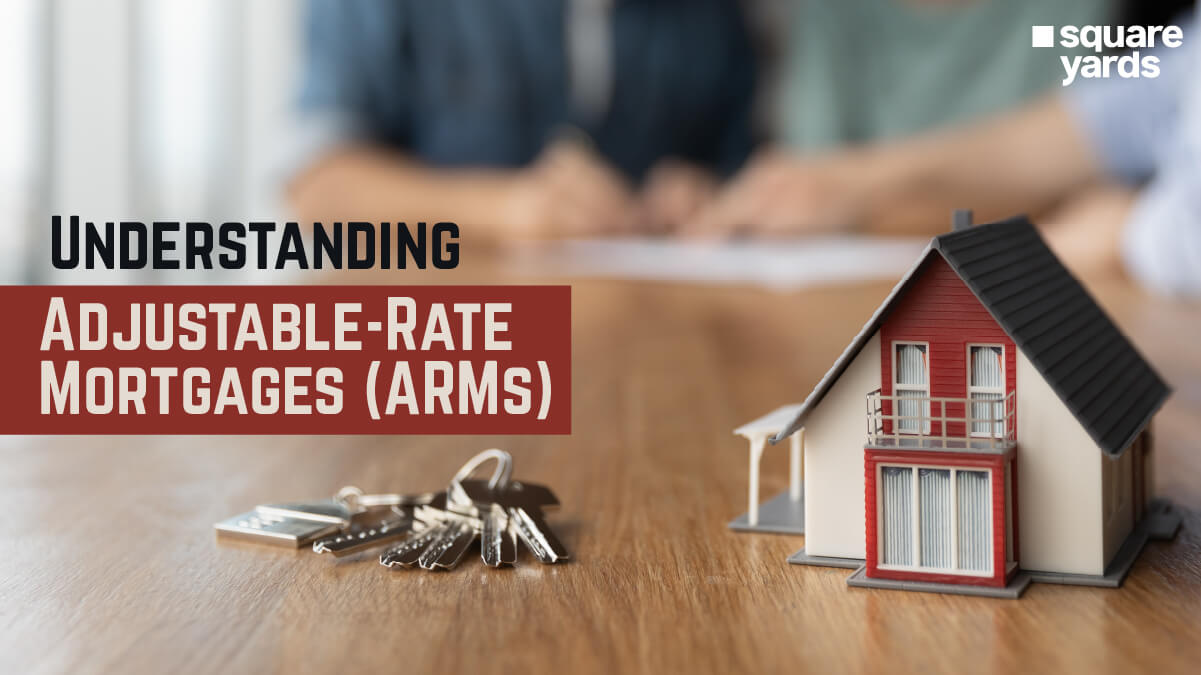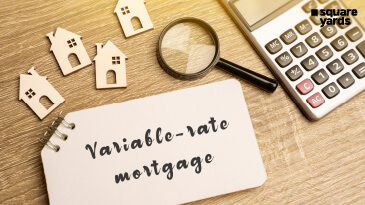Commercial real estate comprises properties exclusively used for business requirements like shopping malls, office buildings, hotels and more. Banks, as well as a wide variety of lenders, are readily available in Canada to fund these purchases with fixed criteria. If you are looking for commercial property loans, we have got you covered. this blog outlines in great detail about types of commercial real estate loans and commercial mortgage rates in Canada.
Understand Commercial Real Estate Loans
Commercial real estate loans are a kind of finance used to purchase property for commercial use. These are precisely commercial mortgage loans used as collateral. They are frequently drawn out by corporations and enterprises rather than private individuals. Usually, the periods of commercial loans range from five to twenty years, with the repayment period often surpassing the loan term. Loan-to-value ratios for commercial loans range between 65 to 80 per cent.
Commercial Real Estate Loan Lending Companies in Canada
The real estate market in Canada is evolving at a fast rate. Hence, commercial real estate loans are a standard key to enable owning property in your own name. Though the market is flooded with numerous loan lending companies, you must always look for better interest rates and trustworthy contract procedures.
Here are the top 5 Real estate loan lending companies.
-
- Prestigious Properties
- QuadReal Property Group
- Peterson Real Estate
- Cromwell Management
- Rich Ottawa Investments
Categories of Commercial Real Estate Loans in Canada
It is crucial to be aware of your numerous financing options when you are upgrading, leasing or buying out commercial real estate property. Seven distinct forms of commercial real estate loans are often provided by banking organisations as follows:
-
Cash-out Loans
This kind of funding or refinancing for commercial real estate entails withdrawing an old mortgage and settling off the equity portion of the property. Alternatively, it can only mean paying off the equity of the real estate without a mortgage.
-
Bridge Loans
Bridge loans are quick loans used to pay for commercial real estate assets while searching for permanent financing. Bridge loans are frequently referred to as temporary loans. Real estate improvements, mining, and renovations can be funded through a bridge loan.
-
Hard Money Loans
These loans are connected to seasoned borrowers in the real estate industry. Such loans are given out without being obliged to go through the cumbersome paperwork compared to obtaining equivalent loans.
-
Refinancing Loans
Refinancing entails the complete purchase of a debt from one financial institution by another in order to benefit from factors like lower interest rates and extended repayment clauses.
-
Fix-and-Flip Loans
Various investors employ this sort of commercial real estate investment to create properties that are subsequently sold for a gain. Akin to a bridge loan, this kind of funding pays for the deficit sustained while in anticipation of more stable financing.
-
Construction Loans
Owners of commercial real estate or prospective investors in commercial real estate utilise this loan to enhance their operations, build a property, or expand it solely for investment purposes.
-
Purchasing Loans
A purchase loan lets the holder use borrowed money to buy commercial property. Due to the fact that the purchased property is a business property, it is employed to produce more money.
What are Average Commercial Real Estate Loan Rates?
Commercial real estate loans typically have an interest rate between 2.2% and 18%. The sort of loan you opt for, your eligibility as an applicant, and the kind of property or enterprise you’re funding will all have an impact on the real rate of interest you receive. There are broadly two types of average commercial real estate loan rates, as described below:
-
Average Commercial Real Estate Loan Rates by Loan Type
Commercial Mortgage Ontario rates may be as low as 2.231%, subject to the sort of credit you select. Typical business financing and loans with government backing, like those from the Small Business Administration (SBA) or the Department of Agriculture (USDA), usually come with highly competitive interest rates and the greatest loan-to-value (LTV) ratios.
In order to qualify for a traditional commercial real estate loan, it’s necessary to place a larger deposit and pay higher interest rates. This is usually the case if you have poor credit, unsteady company earnings, or the funded asset requires remodelling. You can opt for commercial mortgage businesses that focus on low-risk lending.
-
Average Commercial Real Estate Loan Rates
Financing for commercial property mortgage may have interest rates as little as 3.77%. You may buy a house with the aid of an investment property loan, refurbish it, and then sell it off for a profit. The LTV ratios for such mortgages will be smaller than those for privately owned commercial real estate. These typically range from 66% to 73%. As a result, if you want to buy an asset for $1 million, the financial institution may provide you with a $730K loan, which implies that you will need to put down $270K.
Possible Replacements for a Commercial Real Estate Loan
Alternative mortgage lender refers to a variety of distinct organisations that offer loans to buyers. Most mortgages in Canada are obtained from large banks. These banks provide some of the best commercial property mortgage alternatives, but they are strongly selective about the applicants they accept, and government regulations are very rigorous. However, alternative lenders are more open to offering a variety of terms, and they frequently use several standards to approve mortgages.
Some of the alternatives to commercial real estate loans include the following:
-
Credit Unions
A credit union functions quite similarly to a traditional bank in terms of services such as bank accounts and commercial property loans. Credit unions are regarded as non-profit corporations that offer monetary products and services for the benefit of their customers.
-
Monoline Lenders
A financial institution that solely provides one kind of loan, such as a mortgage, is known as a monoline lender. They provide Canadian commercial mortgage rates that are reasonably close to those offered by large banks but might come with different conditions, charges, and sanctions.
-
B-Lenders
B-Lenders are a particular class of mortgage lenders that do not adhere to the same stringent rules as the big banks and are permitted to lend under alternative conditions. However, lower qualification requirements may come with higher commercial mortgage rates of interest as a price.
Things to Consider When Looking For a Commercial Mortgage
A commercial property mortgage can be beneficial to you in more ways than you imagined. They are largely viewed as a source of business funding and reduce the risks of being vulnerable to rental upheavals. While there are huge benefits of commercial mortgages, it is important to consider a few points when you opt for the same.
-
Consider Multiple Options
Purchasing or constructing a commercial property is a significant investment for your company or for you as an entrepreneur. You need to be ready to compare prices and bargain in order to secure an outstanding deal. You should begin with familiar financial institutions. Start with nearby and localised banks, credit unions, and mortgage lenders if you don’t already have a particular financial institution on your list. It is better to start with these institutions as they will be more familiar with the local market than an outside lender.
-
Go Through Contracts Minutely
A loan proposal is also likely to have a contract, which should be read thoroughly. Some lenders may demand personal guarantees from each organisation owner or ask you to cover the cost of ecological reports or inspections of the construction yourself. Contracts may also contain provisions that, if broken, could render the loan null and void. In order to be sure that you don’t take excessive risks as a borrower, read the contract in its entirety. Consult a lawyer or other legal experts to assist you better in grasping and analysing the contract’s details as you go over it.
-
Opt for Government-Supported Loans
Independent business owners can apply for a loan under a government-backed programme, like an SBA 504 loan or a USDA business loan. Compared to a conventional commercial property mortgage, these kinds of loans are simpler to be approved while still available at affordable interest rates. However, these programmes are often exclusively accessible to borrowers who are buying or constructing privately owned residences.
You May Also Know :
| Apply For Vacant Land Mortgage | Vacant Land Mortgage |
| Alternatives of Reverse Mortgage Loan | Reverse Mortgage Loan |
| Personal Loan in Canada | Apply For Personal Loan in Canada |
| Small Business Loan in Canada | How To Get Business Loan in Canada |
Summing Up
One of the most popular ways to buy real estate property in Canada is through commercial property loans. Lenders would be been eager to provide attractive incentives to prospective commercial mortgagees by establishing an arranged interest rate, versatile compensation cycles, as well as greater than 90% financing. However, for a successful settlement of mortgages, it is crucial to utilise a methodical strategy of evaluating characteristics, advantages, and various organisations offering commercial real estate loans.
Frequently Asked Question (FAQs)
How long can I finance commercial real estate?
The finance period for commercial real estate loans usually ranges from 5 to 20 years.
Is it hard to get a commercial real estate loan?
Accessing commercial real estate loans in Canada is an easy process. You need to keep your financial record and business documents in place.
What types of properties qualify for a commercial real estate loan?
Commercial properties like shopping malls, office buildings, hotels and more are qualified for commercial real estate loans.
What is a good interest rate on a commercial loan?
Anything around 4% is considered a good interest rate for commercial loans.











